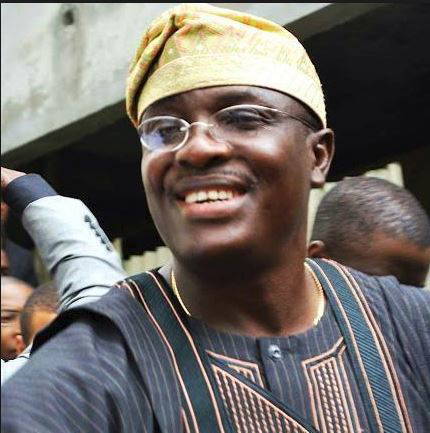Remigus, a Compliance Officer, tendered the exhibits while being led in evidence by the Economic and Financial Crimes Commission (EFCC)’s lawyer, Rotimi Oyedepo, SAN, before Justice Obiora Egwuatu of the Federal High Court in Abuja.
The banker was the 6th prosecution witness (PW-6) in the ongoing trial of Ali, who is also a nephew to ex-Gov. Yahaya Bello of Kogi.
The EFCC had, on Feb. 8, 2023, arraigned Ali Bello, Abba Daudu, Yakubu Siyaka Adabenege, Iyada Sadat and Rashida Bello (at large) on 18-count of criminal misappropriation and money laundering of N3,081,804,654.00.
They, however, pleaded not guilty to all the counts when they were read to them.
When the matter was called on Tuesday, Oyedepo informed the court that the matter was slated for trial continuation.
While being led in evidence, Remigus explained how millions of naira were deposited into Komfort Koncept Company’s bank account from the bank account names of different local government areas (LGAs) in the state on different dates in 2018.
The witness said that on specific dates, monies were simultaneously transferred from the said account, at different times, into some of the defendants’ bank accounts, especially Daudu’s.
“On October 4, 2018, there were nine credits or inflows into the account of Komfort Koncept Company,” he said.
He told the court that N18,629,944 came from Ibaji LGA of Kogi.
He said N20,887,537 came from Adavi LGA and N17,496,929 came from Kogi LGA.
The PW-4 also said N18,460,565 came from Kabba LGA while N17 million came from Ankpa LGA.
“Yagba West Local Government credited N18,234,063, while Ofu Local Government credited N21,363,633,” the witness added.
When asked how much was in the Komfort Koncept’s bank account before the inflows, Remigus said: “N7,275.”
According to him, on the date of the inflows, there was a transfer of N105 million to Abba Daudu and others.
Earlier in the proceedings, the EFCC’s witness identified associated bank documents, including the statements of account, account opening packages and certificates of identification of accounts of Komfort Koncept, Yakubu, Daudu, and others.
Oyedepo, therefore, applied to tender the documents as exhibits but defence legal team, including Nureni Jimoh, SAN, objected to the admissibility of the documents but reserved objections for the final written address stage.
Justice Egwuatu subsequently admitted the exhibits in evidence, noting that the probative value of the exhibits would be determined by the court during the judgment.
The judge consequently adjourned the .after until May 5, May 19, May 20 and May 21 for the continuation of the trial.
It would be recalled that the EFCC is also prosecuting Ali Bello in another case before Justice James Omotosho.(NAN)











